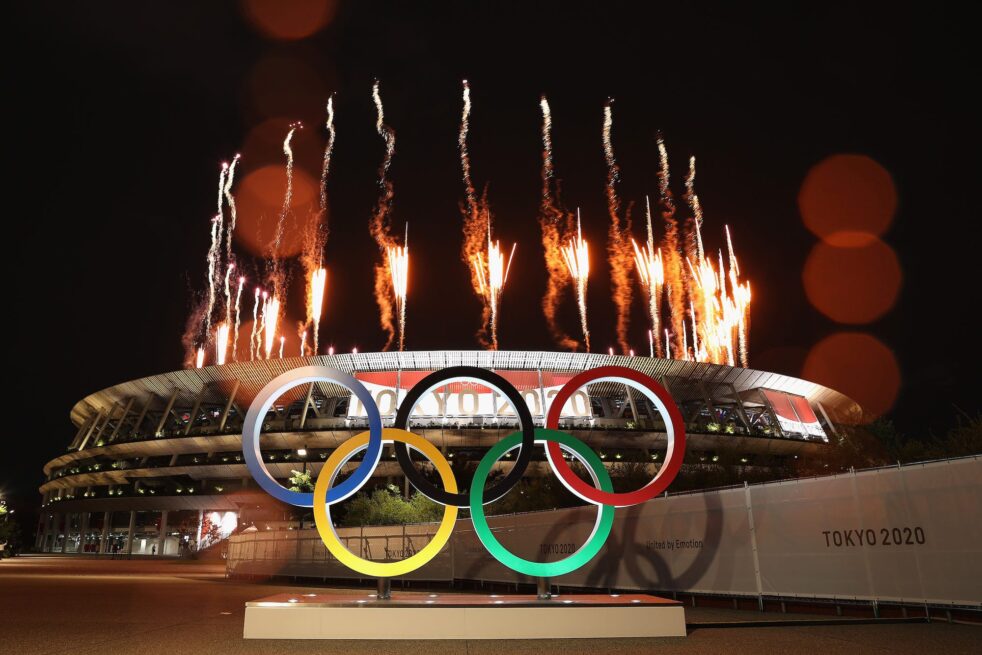The 2020 Tokyo Olympics may have concluded, but for many Jackets, the experience is now a memory they will never forget.
Nine Tech affiliates participated in the Olympics this year, including current students, incoming first-year students, graduates and coaches.
Current students included Caio Pumputis, fifth year BA student, who competed for the Brazilian swimming team and Batur Ünlü, second year BME who competed for the Turkish swimming team. Incoming freshmen students included Defne Taçyildiz, first year, and Berke Saka, first year, who also competed for the Turkish swim team.
Former students included Andrew Chetcuti, BIOL ‘16 who competed with the Maltese swimming team, Josh Okogie who played for the Nigerian basketball team and Avi Koki Shafer who competed with the Japanese basketball team. Tech coaches include Nat Page, assistant coach for the US track and field team, and Mfon Udofia, BA ‘13 assistant coach for the Nigerian men’s basketball team.
Both Saka and Chetcuti received the honor of carrying their nation’s flag in the Olympic Opening Ceremony.
In a recent interview with the Atlanta Journal Constitution, Chetcuti said that being named the Maltese flag bearer was “unexpected” but that he “was pretty pumped” when he found out.
Chetcuti also reflected on the alterations to the Games due to the pandemic, including less interactions with other international athletes, daily saliva COVID tests and social distancing in the dining halls.
Despite these changes, Chetcuti said, “It was still the Olympics Games, so it [was] still the same vibe.”
Closer to home, many Tech students participated in the Olympics on-campus by watching alongside their hall community.
“I watched the summer Olympics in the Towers 2 lounge with friends,” said Ophelia Winslett, first-year BME. “For the opening ceremony, our floor [RA] brought a variety of snacks from different countries for us to try and eat … It was a fun time for us to watch the different sports, hang out and socialize.”
For Winslett, the Olympics “symbolizes the fact that the entire world can come together and enjoy something in common, despite everyone’s differences.”
Winslett continued by emphasizing the role of unity in the Olympics.
“The Olympics is one of the few events that unifies everyone. Being able to hold the Olympics, despite COVID-19, shows the commitment people have to continuing the Olympics,” Winslett said.
The challenges of hosting the events during the COVID-19 pandemic made this year’s Olympic events not only memorable to those who participated or watched at home, but also one for the history books.
In the lead up to the Olympics, many Tech professors commented on the significance of the 2020 Olympics and discussed the unique difficulties of hosting the Games during a worldwide health crisis.
International affairs professors Dr. Kirk Bowman and Dr. Brian Woodall provided comments in a discussion, “Insights into the Tokyo Olympics,” moderated by History, Technology and Society professor Dr. Mary McDonald on July 22.
“A major issue … discussed was the issue of hosting an international event during a global pandemic,” McDonald said. “… Local public sentiment was largely against Tokyo hosting the Games in 2021. Polling suggests that nearly 80% of the Japanese people believe that the Tokyo Games should be postponed or cancelled. Local officials feared the Olympics might help trigger an additional rise in infections within Tokyo.”
Another issue discussed was the delay of the Games from their original date in summer 2020 to their actual date in summer 2021.
“The original bid to host the Tokyo Olympics estimated the cost at about 7.5 billion (US) dollars,” McDonald said.
“Most recent projections suggest that the event cost over 15 billion (US) dollars — with about 3 billion of that attributable to the costs associated with the COVID delay.”
As the Director of Tech’s Sports, Society and Technology (SST) Program, McDonald has always been “interested in looking at the social, political and economic impact of the Games.”
This year’s events, McDonald explained, were unique in their focus on athletes’ mental health.
“Travel parties to the Games were limited and thus most athletes did not have an extensive support system at the Games. Athletes reported feeling isolated … I don’t recall a sporting event prior to this one where mental health was so visibly discussed in the media,” McDonald said.
In addition to the unparalleled focus on mental health, McDonald also thinks another “issue that will be remembered is the absence of spectators at the event … Clearly athletes are used to audiences so that certainly was a new dynamic to content with.”
School of Psychology professor Bruce Walker also commented in a recent interview for Tech’s College of Sciences on the impact of the Olympics without the usual spectators.
Walker explained that for some athletes who compete in sports that require intense concentration, such as golf or archery, “the absence of fans and the sounds they make can be a blessing. It is easier to concentrate on performing, which may help some athletes perform at their peak.”
However, for other athletes, crowd noise provides motivation and energy.
“The cheering fans pump up the athletes, and the roar from the stands can push adrenaline and grit, and help athletes squeeze just a little bit more out of their tired bodies,” Walker said.
“It is easier to ‘leave it all on the field’ when there are hundreds or thousands screaming for you or your team.”
Looking back on this year’s Olympics, Tech students, professors and affiliates have plenty to remember and to study about the unique events which, like most pandemic-era events, came with many complexities and mixed emotions.
